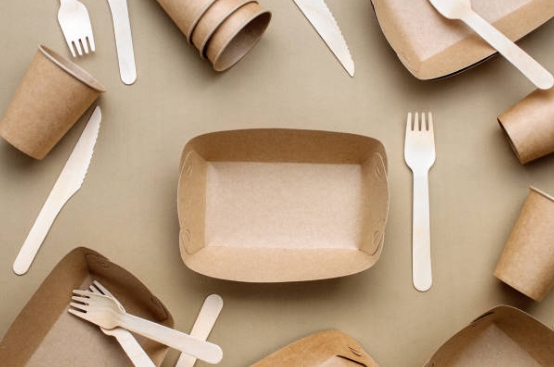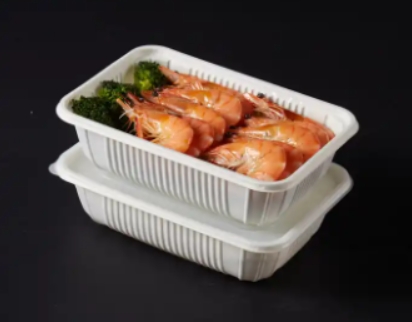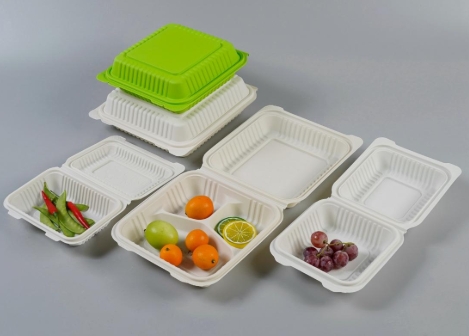
Content Menu
● Overview of the Japanese Disposable Tray Market
● Leading Disposable Tray Manufacturers and Suppliers in Japan
>> Mitsubishi Chemical Holdings Corporation
>> Toyo Seikan Group Holdings, Ltd.
>> Toppan Printing Co., Ltd.
>> Dai Nippon Printing Co., Ltd.
>> Nippon Paper Industries Co., Ltd.
>> Oji Holdings Corporation
>> Nippon Molding Co., Ltd.
>> KAYU PACKAGE
● Sustainability and Innovation in Japanese Disposable Tray Manufacturing
>> Key Innovations
● The Manufacturing Process: From Raw Material to Finished Tray
>> Step 1: Material Sourcing
>> Step 2: Molding and Forming
>> Step 3: Quality Control
>> Step 4: Packaging and Distribution
● OEM and Export Capabilities
● Market Trends and Future Outlook
>> Market Growth
>> Sustainability Focus
>> Technological Advancements
● Conclusion
● Frequently Asked Questions
>> 1. What are the main materials used by Japanese disposable tray manufacturers and suppliers?
>> 2. How do Japanese disposable tray manufacturers ensure product quality?
>> 3. Can Japanese disposable tray manufacturers provide OEM services for international clients?
>> 4. What sustainability initiatives are Japanese disposable tray manufacturers implementing?
>> 5. What are the key trends shaping the future of the disposable tray market in Japan?
Japan is renowned for its innovation, quality, and commitment to sustainability in the disposable tray industry. As global demand for hygienic, eco-friendly, and visually appealing food packaging continues to rise, Japanese disposable tray manufacturers and suppliers are setting new benchmarks. This comprehensive article explores the leading companies, their advanced technologies, sustainability initiatives, and the evolving market landscape. It is designed to provide valuable insights for international brand owners, wholesalers, and OEM partners seeking reliable disposable tray manufacturers and suppliers in Japan.

Overview of the Japanese Disposable Tray Market
Japan's disposable tray market is a dynamic blend of tradition, innovation, and a strong commitment to environmental responsibility. The market is driven by several key factors:
- High demand from foodservice, retail, and convenience sectors: The proliferation of convenience stores, bento culture, and food delivery services has fueled the need for high-quality disposable trays.
- Stringent environmental regulations: The Japanese government enforces strict policies to reduce plastic waste and promote the use of biodegradable and recyclable materials.
- Advanced manufacturing technologies: Japanese manufacturers employ cutting-edge processes to ensure product quality, safety, and efficiency.
- Aesthetic and functional design: Japanese trays are known for their elegant appearance and practical features, enhancing the consumer experience.
The disposable food packaging market in Japan generated over USD 3.3 billion in revenue in 2024 and is projected to reach USD 5.6 billion by 2030. Plastics currently account for nearly 60% of the market share, but there is a clear shift toward sustainable alternatives.
Leading Disposable Tray Manufacturers and Suppliers in Japan
Mitsubishi Chemical Holdings Corporation
Mitsubishi Chemical Holdings is a leader in the Japanese food packaging industry, producing a wide range of packaging materials, including plastic films, containers, and trays. Their products are recognized for their quality, innovation, and strong presence in both domestic and international markets. Mitsubishi Chemical Holdings is also at the forefront of developing eco-friendly materials and solutions, making them a preferred partner for businesses seeking sustainable packaging options.
Toyo Seikan Group Holdings, Ltd.
Toyo Seikan Group is renowned for its comprehensive packaging solutions, including disposable trays, cans, PET bottles, and paper containers. The company holds a significant share of the Japanese market and is recognized for its commitment to sustainability and resource circulation. Toyo Seikan has introduced several award-winning innovations, such as the Drawable Can and the Paper Squeezing Tray, which uses 80% less resin than conventional trays and is suitable for both microwaves and ovens.
Toppan Printing Co., Ltd.
Toppan Printing offers a diverse range of packaging solutions, including flexible packaging, labels, and cartons. Their focus on sustainability and quality makes them a trusted partner for many food companies in Japan. Toppan Printing is known for its advanced printing technologies and ability to deliver customized packaging solutions that meet the evolving needs of the food industry.
Dai Nippon Printing Co., Ltd.
Dai Nippon Printing is a major player in packaging design, printing, and manufacturing. Their high-quality products and innovative solutions cater to the diverse requirements of the food industry. Dai Nippon Printing is committed to sustainability, investing in research and development to create packaging that is both functional and environmentally friendly.
Nippon Paper Industries Co., Ltd.
Specializing in paper-based packaging, Nippon Paper Industries provides a variety of eco-friendly products such as paper bags, cartons, and boxes. Their commitment to sustainability and innovation makes them a preferred choice for many food companies looking to reduce their environmental footprint.
Oji Holdings Corporation
Oji Holdings offers a wide range of packaging solutions, including corrugated boxes, paper cups, and trays. Their reputation for quality and reliability has made them a top choice for food packaging imports in Japan. Oji Holdings is also actively involved in developing new materials and technologies to meet the growing demand for sustainable packaging.
Nippon Molding Co., Ltd.
Nippon Molding is the leading egg tray manufacturer in Japan, specializing in sustainable paper-molded products. Their innovative Pulp Mold 2.0 technology is gaining traction, especially in the frozen food sector, as Japanese companies seek high-quality, locally produced packaging. Nippon Molding is expanding its dry molded fiber portfolio, using advanced machinery to produce trays that are oil-resistant, microwaveable, and environmentally friendly. Their new factory in Nagano is set to increase production capacity from 10 million to 100 million packs per year.
KAYU PACKAGE
KAYU PACKAGE specializes in eco-friendly disposable wooden food containers, offering sustainable packaging solutions that align with Japan's environmental goals. Their products are popular among businesses seeking natural, biodegradable alternatives to traditional plastic trays.
Sustainability and Innovation in Japanese Disposable Tray Manufacturing
Japanese disposable tray manufacturers and suppliers are at the forefront of sustainability, driven by government regulations, consumer demand, and corporate responsibility. Key sustainability initiatives include:
- Government regulations targeting plastic waste reduction: The Japanese government has implemented policies to reduce single-use plastics and encourage the use of biodegradable and compostable materials.
- Consumer demand for eco-friendly products: Japanese consumers are increasingly aware of environmental issues and prefer products that are sustainable and safe for the environment.
- Corporate responsibility and investment in green technologies: Companies are investing in research and development to create innovative, sustainable packaging solutions.
Key Innovations
- Dry Molded Fiber Technology: This technology reduces water and energy usage by up to 80% compared to traditional methods, enabling rapid, eco-friendly tray production.
- Recycling Initiatives: Companies like FPCO recycle over 1.9 billion styrofoam trays annually, significantly reducing CO2 emissions and plastic waste.
- Material Innovation: There is a shift from plastic to paper, wood, and bioplastics, with a focus on durability, heat resistance, and aesthetic appeal.
The Manufacturing Process: From Raw Material to Finished Tray
Step 1: Material Sourcing
Japanese manufacturers prioritize the use of recycled paper, wood, and plastics, sourcing materials from local and sustainable suppliers whenever possible. This approach not only supports the local economy but also reduces the environmental impact associated with long-distance transportation.
Step 2: Molding and Forming
- Pulp molding is used for paper trays, creating sturdy and biodegradable products.
- Injection molding and thermoforming are employed for plastic trays, ensuring precision and consistency.
- Die-cutting is used for paper-based trays, allowing for intricate designs and efficient production.
Step 3: Quality Control
Rigorous testing is conducted to ensure that trays meet strict standards for strength, heat resistance, and food safety. Japanese manufacturers comply with both domestic and international regulations, providing assurance to global partners.
Step 4: Packaging and Distribution
Efficient supply chains and logistics systems ensure timely delivery of products. Many manufacturers offer customizable OEM solutions, allowing clients to tailor packaging to their specific needs and branding requirements.

OEM and Export Capabilities
Japanese disposable tray manufacturers and suppliers are highly experienced in OEM production, offering a range of services to international clients:
- Custom design and branding: Manufacturers work closely with clients to develop unique packaging solutions that reflect their brand identity.
- Flexible production volumes: Whether clients require small batches or large-scale production, Japanese manufacturers can accommodate diverse needs.
- Strict quality assurance: Products undergo thorough testing to ensure they meet the highest standards for safety and performance.
- Sustainable packaging options: Manufacturers offer a variety of eco-friendly materials and designs to comply with global regulations and consumer preferences.
Many companies, such as Nippon Molding and Toyo Seikan Group, have established international partnerships and export networks, making them ideal OEM partners for brand owners, wholesalers, and manufacturers worldwide.
Market Trends and Future Outlook
Market Growth
The Japanese disposable tray market is projected to grow steadily, driven by the expansion of quick service restaurants, food delivery, and convenience retail. The disposable aluminum tray segment alone is expected to reach USD 0.35 billion by 2033, growing at a CAGR of 5.5%. This growth is supported by increasing consumer demand for convenient, hygienic, and sustainable food packaging solutions.
Sustainability Focus
Biodegradable and compostable trays are becoming mainstream, supported by government policies and heightened consumer awareness. Material innovation is accelerating, with edible, water-soluble, and fully biodegradable trays on the horizon. Companies are also exploring the use of renewable resources, such as bamboo and bagasse, to further reduce their environmental impact.
Technological Advancements
- Smart trays: Incorporating antibacterial coatings and heat-sensitive materials to enhance food safety and convenience.
- Automated production lines: Improving efficiency, consistency, and scalability in manufacturing processes.
- Digital printing and customization: Allowing for greater flexibility in design and branding, meeting the unique needs of clients in various markets.
Conclusion
Japan's disposable tray manufacturers and suppliers are global leaders in quality, innovation, and sustainability. With advanced technologies, strong OEM capabilities, and a commitment to eco-friendly solutions, they are well-positioned to meet the needs of international partners. The market is evolving rapidly, driven by environmental regulations, consumer demand, and technological advancements, making Japan a top destination for sourcing disposable trays. Businesses seeking reliable, high-quality, and sustainable disposable tray manufacturers and suppliers will find Japan's industry to be a valuable and forward-thinking partner.

Frequently Asked Questions
1. What are the main materials used by Japanese disposable tray manufacturers and suppliers?
Japanese manufacturers use a variety of materials, including plastics (polystyrene, PET), paper, wood, and bioplastics. There is a strong shift toward eco-friendly materials such as molded pulp, bamboo, and biodegradable plastics to meet sustainability goals.
2. How do Japanese disposable tray manufacturers ensure product quality?
Quality is ensured through advanced manufacturing technologies, rigorous testing, and compliance with food safety standards. Many companies have received awards for innovation and quality, reflecting their commitment to excellence.
3. Can Japanese disposable tray manufacturers provide OEM services for international clients?
Yes, most leading manufacturers offer OEM services, including custom design, branding, and packaging solutions tailored to the needs of global brand owners, wholesalers, and manufacturers.
4. What sustainability initiatives are Japanese disposable tray manufacturers implementing?
Initiatives include the use of recycled and biodegradable materials, investment in dry molded fiber technology, and comprehensive recycling programs that significantly reduce CO2 emissions and plastic waste.
5. What are the key trends shaping the future of the disposable tray market in Japan?
Key trends include the adoption of sustainable materials, technological innovation in manufacturing, increased demand from food delivery and retail sectors, and a growing focus on product aesthetics and user experience.


















